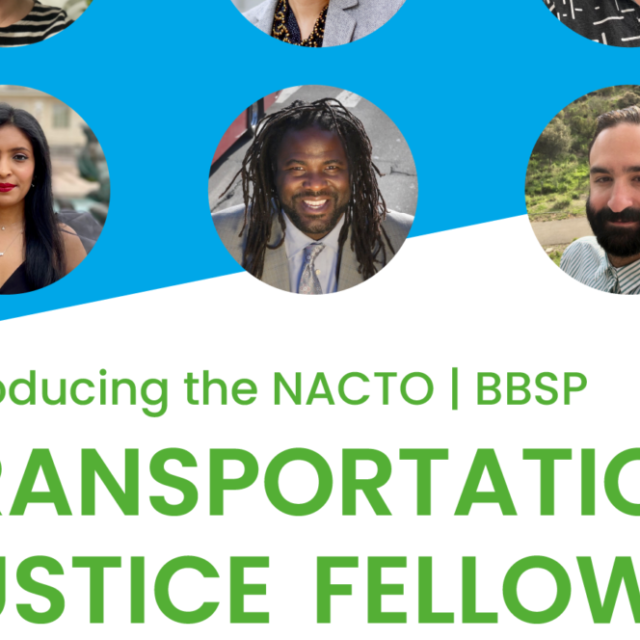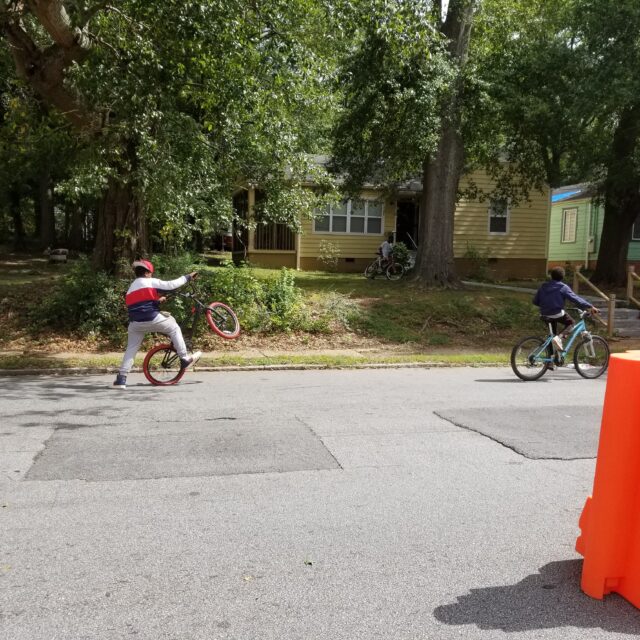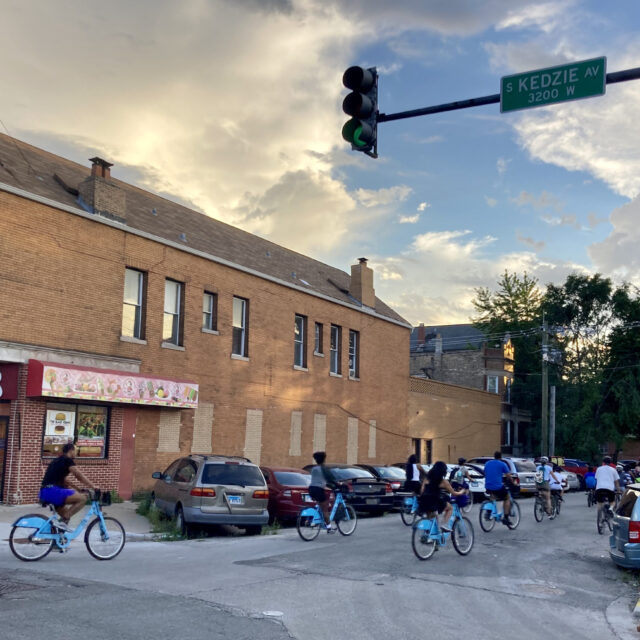The Transportation Justice Fellowship is Back
by Kiran Herbert, Communications Manager
September 2, 2022
A partnership between NACTO and BBSP, this eight-month fellowship is designed for early- and mid-career professionals. Applications are due September 25, 2022.

The Transportation Justice Fellowship, a partnership between the National Association of Transportation Officials (NACTO) and the Better Bike Share Partnership, is back for a 2022-2023 cohort. The application is currently open and submissions will be accepted on a rolling basis until September 25, 2022.
“Transportation justice” means all communities have access to a safe, reliable, affordable, and equitable transportation system that connects them to the places, people, and resources they need to thrive. This fellowship was created as a way to invest resources to support and sustain the people doing the heavy work to operationalize equity across the transportation field.
The program, which will run from November 2022 to June 2023, is designed for US-based early- and mid-career professionals who identify as people of color and are engaged in embedding mobility justice in transportation agencies and beyond. Our goal is to create community amongst those working toward transportation justice and amplify these voices by providing professional development and networking opportunities.
Fellows will have the opportunity to:
- Build community among fellows and cultivate networking opportunities.
- Build leaders capacity to better advance racial justice and equity within government, as well as the transportation and micromobility fields.
- Gain knowledge and tools that fellows can transfer to work programs.
- Help fellows identify new opportunities for individual and organizational growth.
Details:
Over eight months, 8-12 participants will receive more than 50 hours of training and support in both group settings and one-on-one discussions to develop the capacities necessary for creating a more just and representative mobility field. The fellowship will include virtual retreats, skills sessions, a speaker series, learning activation tasks, regular check-ins and ongoing coaching support.
Who Should Apply:
The program content is designed for mobility practitioners that have or will have to confront dynamics of power and equity in the workplace. Professionals from marginalized groups are strongly encouraged to apply. This fellowship is only open to people of color who identify as early- to mid-career professionals and have experience working in mobility, transportation or an adjacent field (i.e. a health professional that works on bike share). Applicants may work in any U.S. city, as well as any sector.
Learning Outcomes for Fellows:
- Participants will learn how to build self-awareness and grounding in one’s self as a way to cope, respond, and create change.
- Participants will have a foundational understanding of how the transportation and shared micromobility systems have contributed to inequitable outcomes, as well as opportunities that currently exist within the field to move towards justice.
- Participants will learn how to center relationships and relationship building in movement-oriented, justice work.
- Participants will learn how to recognize and lean into their power, authority, and talents as change-makers.
- Participants will recognize dominant culture structures.
- Participants will understand structural racism and the implications within the transportation field.
Apply for the 2022-2023 Transportation Justice Fellowship. Applications will be accepted on a rolling basis until September 25th. For questions, please email tjfellowship@nacto.org.
The Better Bike Share Partnership (BBSP) is a collaboration between NACTO, the City of Philadelphia, and the PeopleForBikes Foundation. With support from the JPB Foundation, BBSP works to increase access to and use of shared micromobility systems in low-income and communities of color. Since its founding, BBSP has diligently developed programs and communications strategies to increase equity in shared micromobility, highlight best practices, and elevate the voices of those who have been traditionally underrepresented in transportation decision-making.



